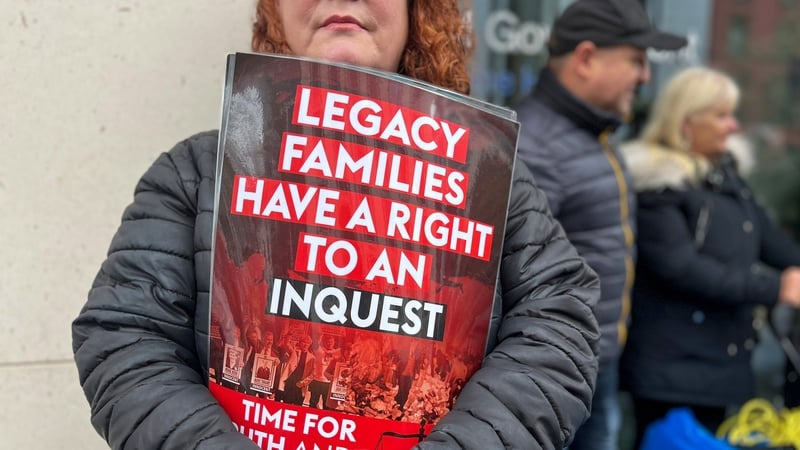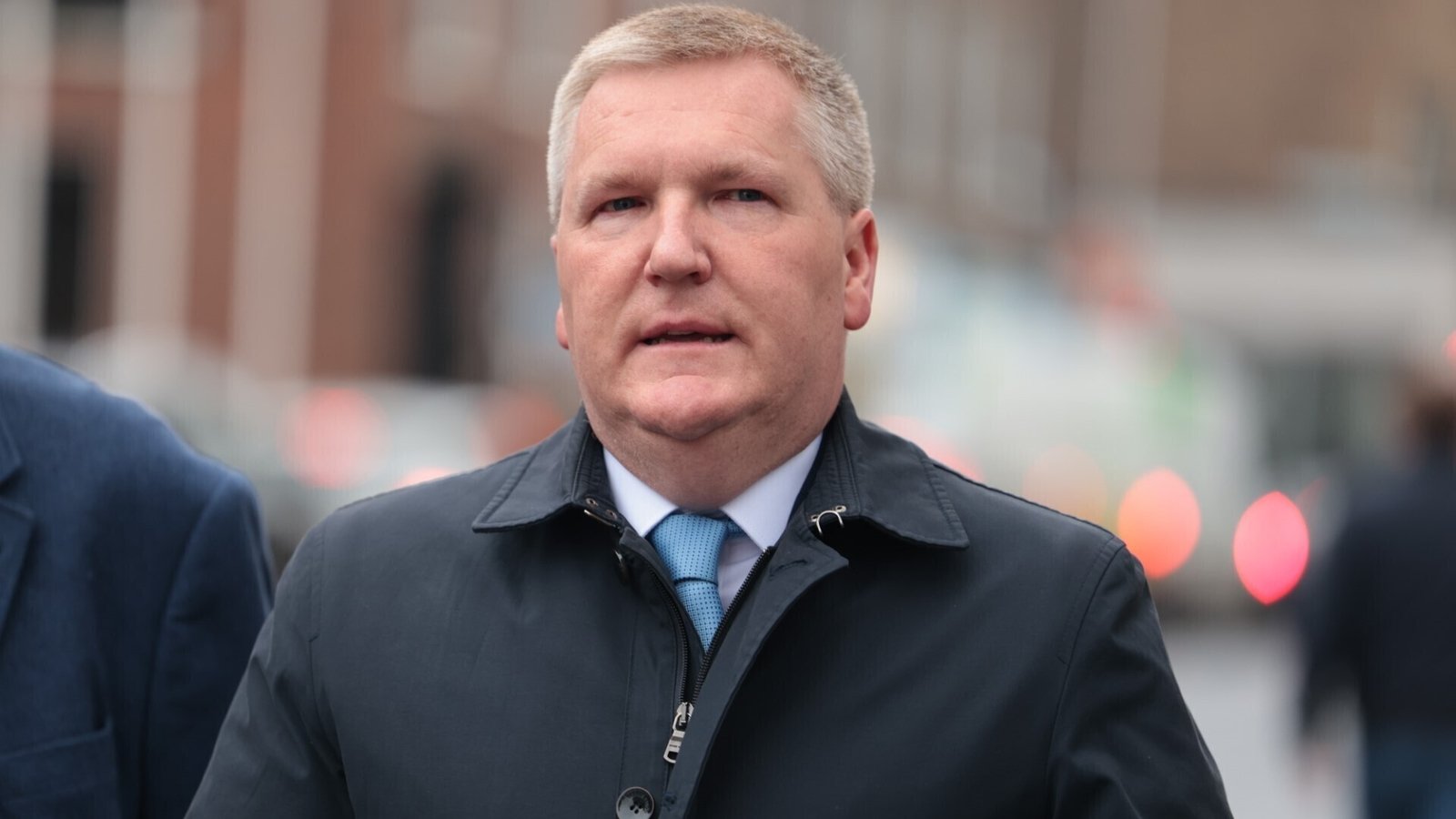
The British government operated a “widespread, systematic and systemic practice of impunity”, protecting security forces from sanction during the Troubles, a new report by an international expert panel has found.
It comes as the UK’s controversial Legacy Bill will become law on Wednesday, which means that all investigations into murders and other attacks during the Troubles will stop and all inquests will be stopped too.
The law is being challenged by the Irish Government in the European Court of Human Rights.
The High Court in Belfast ruled earlier this year that the Legacy Bill, which offers immunity from prosecution, is not compatible with human rights legislation.
Convenor of the international expert panel Gisle Kvanvig said it reviewed existing reports such as inquests, coroners reports and ombudsman’s reports, so they placed an emphasis on only looking into publicly available and official documents.
We need your consent to load this rte-player contentWe use rte-player to manage extra content that can set cookies on your device and collect data about your activity. Please review their details and accept them to load the content.Manage Preferences
Speaking on RTÉ’s Morning Ireland, he said: “Amongst the 54 [killings which had suspected or proven state involvement], there are also people that were killed by paramilitaries and this had to do with how we approached it because we had to develop a method for how to assess these cases.”
Mr Kvanvig said they were looking for investigations that were properly conducted so they could establish a baseline for what to expect at the time and then they could measure other cases against that baseline and that is why they looked at both paramilitary and non-paramilitary killings.
He said among the key failings is that you would not link forensics to the suspects, or when you were interviewing suspects you would not pursue certain lines of inquiry.
“You would do all the basic investigative stuff, but you would not form the key ones,” Mr Kvanvig said.
He said the ‘Tea and Sandwich Agreement’ was an agreement between the police and the military in Northern Ireland not to investigate the cases which was in place in the very early 1970s for a few years and at that point, no investigations were conducted.
When the killing happened “the soldiers would be invited, that’s where the tea and sandwiches comes from – it was a chat about what happened and then nothing was pursued after that conversation”.
The panel also found that the RUC Special Branch conducted a number of investigations.
“There seems to have been an emphasis on collecting intelligence rather than pursuing professional investigations, so the way that it looks is that the Special Branch for instance would not share certain key information with the team of investigators that were looking into the killing and that’s one of the main findings,” Mr Kvanvig said.
He said they do not have the reasons for it but it could have been a way to protect informers.
Mr Kvanvig said that when they set out to do their work, they were looking for plausible explanations for why investigations were not conducted, whether it was a resource problem, if it was too dangerous to conduct them or if there were other obstructions.
However, he said there was nothing to that effect in the official documents they looked at.
Source link
 TG4 TV PC to TV
TG4 TV PC to TV
